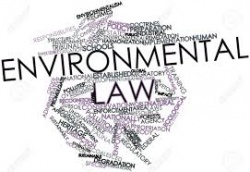
Search archive
Practical guidance for writing and interpreting conditions of approval for environmental regulators in Queensland
24/05/2017

Dr Chris McGrath recently spoke to the Queensland Department of Environment and Heritage Protection about environmental regulators in Queensland, who must write conditions prior to granting an approval and investigators who must interpret conditions after approval is granted, to determine whether a contravention has occurred.
His practical guidance overview covers four main areas:
- What does an application apply to do and what does approval of it include?
- Initial acceptance or rejection of an application.
- Assessing an application and writing conditions.
- Interpreting conditions after approval is granted to determine whether a contravention has occurred.
He has kindly supplied his summary for all AELERT members to view.
THE SPEAKER
Dr Chris McGrath is a barrister and a Senior Lecturer (Environmental Regulation) at the University of Queensland. He holds a BSc, LLB (Hons), LLM and PhD. He teaches Environmental Litigation at the Australian National University. Before being called to the Bar, he worked as an enforcement officer for the then Queensland Environmental Protection Agency.
Have your say on the future of environmental law
08/05/2017

The Australian Panel of Experts on Environmental Law (APEEL) is calling for comment on its recently released recommendations for a new general 'duty of care' and an Environment Future Fund.
APEEL is comprised of experts with experience in environmental law, research, practice and design and aims to set out a vision for environmental laws that ensure Australia has a healthy, functioning and resilient environment to benefit people for generations to come.
The panel of experts on environmental legislation, established in 2014 by an alliance of environment groups, has this month unveiled wide-ranging recommendations for reform of federal and state laws.
They have drafted eight Technical Papers discussing key issues and reform proposals for Australia’s environmental laws.
These eight Technical Papers deal with:
1. The foundations for environmental law.
2. Environmental governance.
3. Terrestrial biodiversity conservation and natural resources management.
4. Marine and coastal issues.
5. Climate law. 6. Energy regulation.
7. The private sector, business law and environmental performance.
8. Democracy and the environment.
These Technical Papers constitute a substantial volume of work and involve complex legal concepts. Together they present fifty-seven specific recommendations contained in an Overview Paper.
The recommendations include the establishment of a Commonwealth Environmental Investment Commission that would identify ways to generate private and public sector contributions to a new Environment Future Fund.
The panel also recommends the introduction of a general duty to restore and rehabilitate harmed environments and another that would require all companies to improve their environmental performance.
The tax system should also be revamped to provide stronger incentives for environmentally responsible practices, it says.
The recommendations are open for comment until June 2, after which APEEL aims to produce a final proposal on directions for reform, by the middle of 2017.

